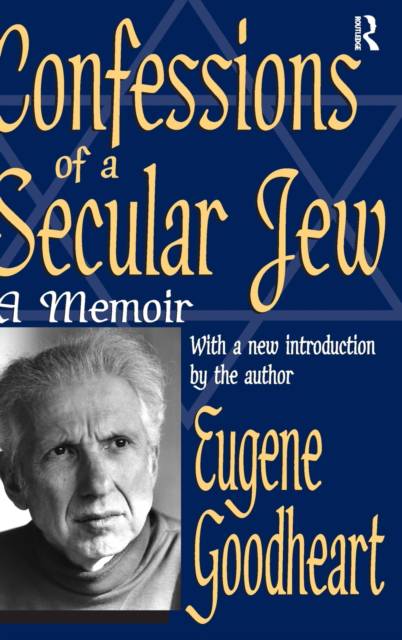
- Afhalen na 1 uur in een winkel met voorraad
- Gratis thuislevering in België vanaf € 30
- Ruim aanbod met 7 miljoen producten
- Afhalen na 1 uur in een winkel met voorraad
- Gratis thuislevering in België vanaf € 30
- Ruim aanbod met 7 miljoen producten
Zoeken
€ 274,95
+ 549 punten
Uitvoering
Omschrijving
What it means to be a Jew lies at the very heart of Confessions of a Secular Jew, a provocative memoir and a thoughtful speculation on the nature of Jewish identity and experience in an increasingly secular world.The legacy bequeathed to Eugene Goodheart was a "progressive" secular Yiddish education which identified Jewish struggles against oppression with working class struggles against exploitation. In the vanguard was the Soviet Union. Goodheart's heroes were Moses, Bar Kochbah, Judah Maccabee, Karl Marx and that strange honorary Jew, Joseph Stalin, whose anti-Semitism would later become known to the world. Confessions of a Secular Jew is the story of Goodheart's disillusionment with the naive, even false, progressivism of that education. At the same time, it is an attempt to rescue and come to grips with the positive remains of that education and heritage.In the introduction to the new Transaction edition of his memoir, Goodheart addresses the themes of social justice, Zionism, chosenness, messianism, and alienation from a secular Jewish perspective. The memoir takes the reader from Goodheart's coming of age in Brooklyn to his higher education at Columbia College in the early fifties and beyond to his varied career as university teacher and literary critic. The memoir provides memorable characterizations of writers whom he knew, among them Lionel Trilling (his teacher), Saul Bellow, Richard Wright (whom he met in Paris), Hannah Arendt, and Philip Rahv.
Specificaties
Betrokkenen
- Auteur(s):
- Uitgeverij:
Inhoud
- Aantal bladzijden:
- 288
- Taal:
- Engels
Eigenschappen
- Productcode (EAN):
- 9781138520998
- Verschijningsdatum:
- 13/07/2017
- Uitvoering:
- Hardcover
- Formaat:
- Genaaid
- Afmetingen:
- 152 mm x 229 mm
- Gewicht:
- 553 g

Alleen bij Standaard Boekhandel
+ 549 punten op je klantenkaart van Standaard Boekhandel
Beoordelingen
We publiceren alleen reviews die voldoen aan de voorwaarden voor reviews. Bekijk onze voorwaarden voor reviews.











